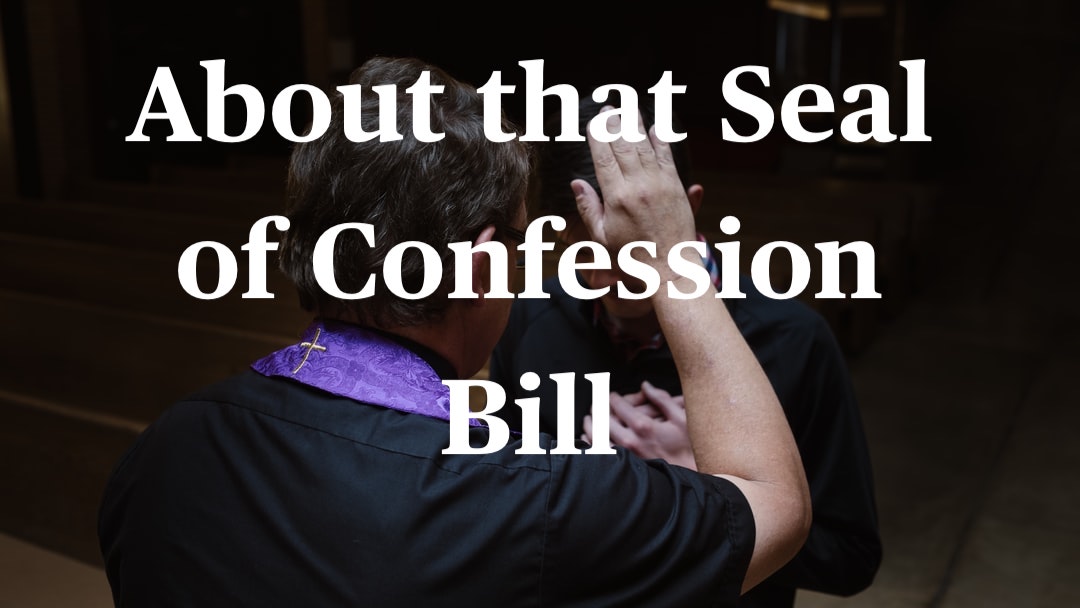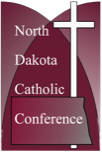
The Seal of Confession Bill
By Christopher Dodson
Executive Director
North Dakota Catholic Conference
March 2021
The biggest event of the North Dakota 2021 legislative session so far concerned a bill that drew national attention and generated an unprecedented number of emails and phone calls, but never had a committee hearing or a floor vote. The bill was Senate Bill 2180, which would have required priests to violate the seal of confession to report information about child abuse.
Here is a short recap. SB 2180 would have required clergy to reveal information about child abuse, even if the information was received in the capacity as a spiritual advisor. For Catholics, that means the seal of confession. Most bills in North Dakota get a hearing and a floor vote, but following an outcry from Catholics and others, the bill was withdrawn from further consideration even before it had a hearing.
While we could claim victory and move on, there are lingering misunderstandings about the bill and existing law that warrant attention. Moreover, there are lessons to be learned from this experience.
Let’s start with the existing law. For decades, all clergy in North Dakota have been mandated reporters of suspected child abuse. Over ninety percent of what a member of the clergy sees, hears, or learns could be reportable. If a pastor sees something in a church service that gives reason to suspect abuse, it must be reported. If a member of the clergy sees something at a wedding reception that is suspicious, it must be reported. If they witness anything at a school, day care, or religious education class, it must be reported.
There is only one narrow situation where the mandate does not apply. It does not apply when the knowledge or suspicion is derived from information received in the capacity of spiritual adviser. This is a non-sectarian and broader way of legally describing what was once known as the priest-penitent privilege.
Senate Bill 2180 did only one thing. It removed this narrow exemption from the mandatory reporting requirement. This would have been unprecedented in American law. Slightly over a majority of the states require clergy to be mandated reporters. A handful of those do not explicitly exempt priest-penitent communications. However, some of those states have other laws that would protect those communications and the legislative history in the remaining states does not indicate that those laws were meant to require divulging confessions. With SB 2180, North Dakota would have become the first state to ever intentionally and explicitly require priests to violate the seal of confession.
In the Catholic Church, a priest cannot, under any circumstances, disclose what the confessor revealed. The “seal of confession” is absolute. A priest cannot break the seal, directly or indirectly, for any reason, even if forced by the law or threaten with death. Breaking the seal leads to automatic excommunication.
SB 2180, therefore, would have placed a Catholic priest in the position of either violating his deeply-held obligation to God to protect the parishioner’s confession or face fines and possible imprisonment.
It is not just the Catholic faithful whose religious freedom was threatened by SB 2180. Just about every faith tradition has some form of spiritual counseling. Following the Reformation, other Christian traditions preserved the seal of confession. Both the Evangelical Lutheran Church in America and the Lutheran Church-Missouri Synod doctrines preserve it. In fact, the North Dakota District of the Lutheran Church-Missouri Synod had already prepared testimony in opposition to SB 2180 before the bill was withdrawn.
The Anglican tradition also retained the seal of confession, which was recognized in English law since Ninth Century. Recognition of the seal of confession has continued in that tradition to the Episcopal Church.
The Orthodox Church states: “The secrecy of the Mystery of Penance is considered an unquestionable rule in the entire Orthodox Church.... Betrayal of the secrecy of confession will lead to canonical punishment of the priest.” The Church of Jesus Christ of Latter Day Saints also mandates confession and church rules require that confessional communications be kept confidential.
News media from across the nation covered the bill. Both bishops had letters read at mass. Catholics responded to the action alerts from the North Dakota Catholic Conference in large numbers. Legislators said they had never received so many emails and phone calls about a bill. The talk in the halls of the capitol was that senators wanted the bill to go away.
Eventually, the bill’s prime sponsor, Senator Judy Lee from West Fargo, withdrew the bill. Before doing so, she was allowed time on the Senate floor to explain her reasons for the bill. She said her purpose was to call attention to the problem of child abuse in North Dakota and the country.
The problem is real and serious. We need to do more to protect children. Indeed, in our efforts on the bill we never questioned nor intended to impugn the motives of the bill’s sponsors.
Nevertheless, laws are not just about intentions. SB 2180, despite good intentions, would have been an unprecedented infringement upon religious freedom. It demonstrates the need to be vigilant.
What We Do
The North Dakota Catholic Conference acts on behalf of the Roman Catholic bishops of North Dakota to respond to public policy issues of concern to the Catholic Church and to educate Catholics and the general public about Catholic social doctrine.

Contact Us
North Dakota Catholic Conference
103 South Third Street, Suite 10
Bismarck, North Dakota
58501
1-888-419-1237
701-223-2519
Contact Us

